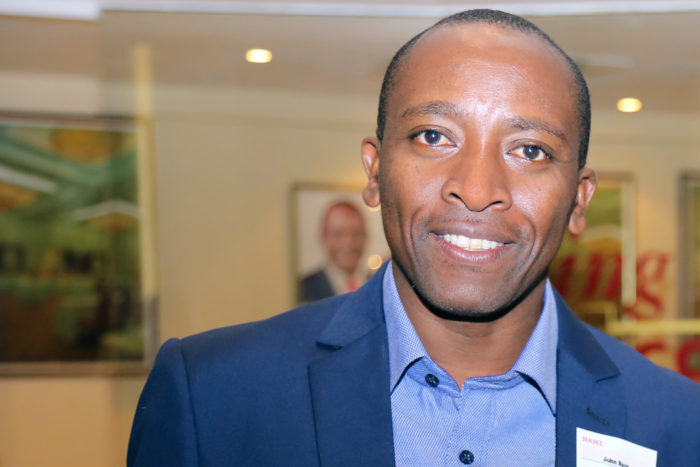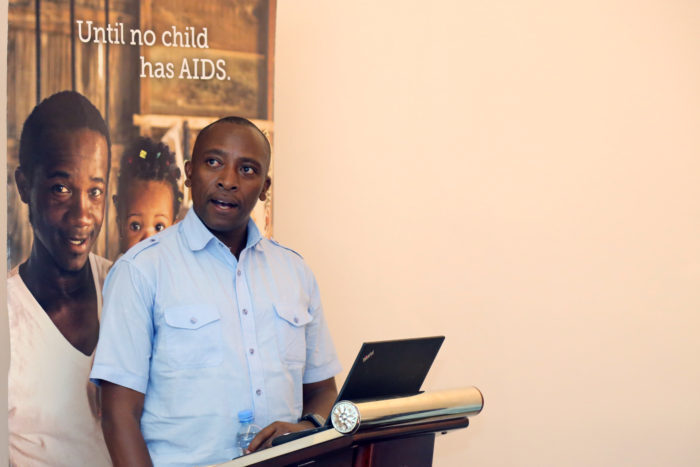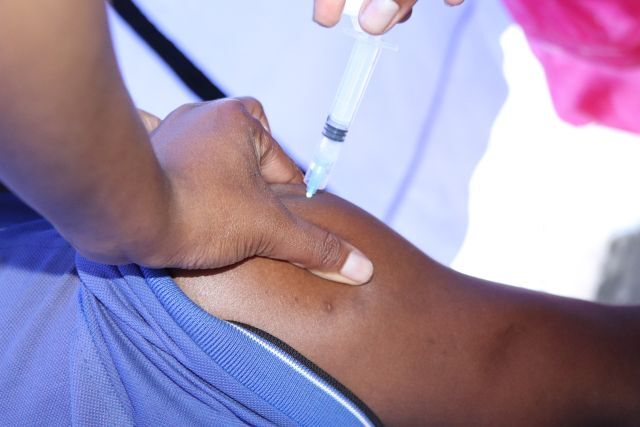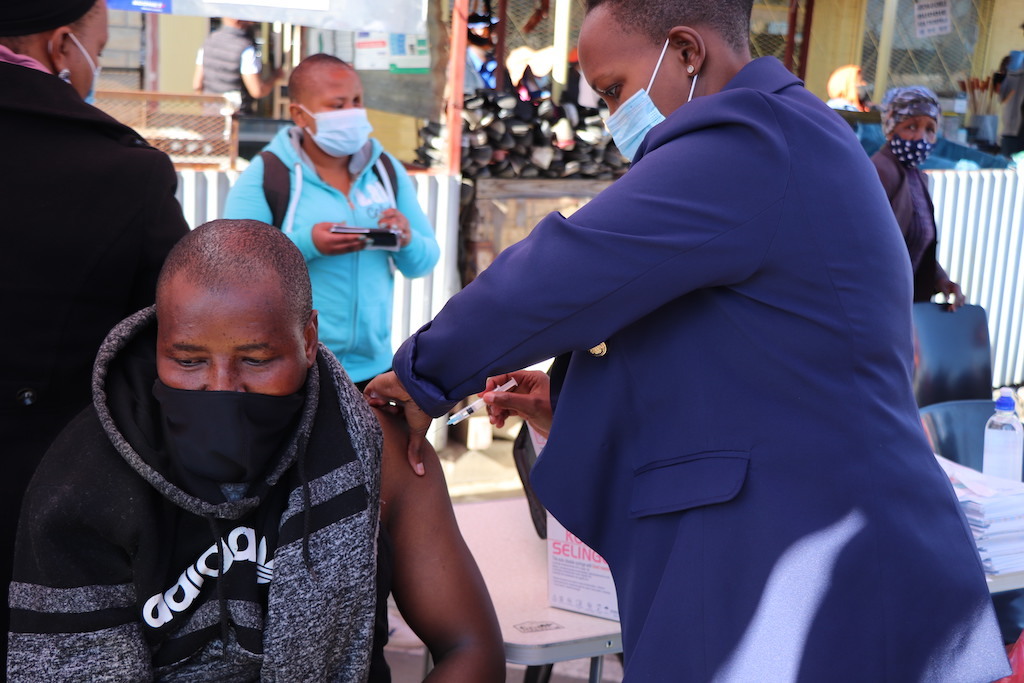When the COVID-19 pandemic appeared on the horizon, John Baru, the director of operations for the Elizabeth Glaser Pediatric AIDS Foundation (EGPAF) in Kenya, went to work on a plan to ensure that HIV and tuberculosis (TB) services would continue.

“How were we going to operate once somebody tested positive for COVID, and lockdown was imminent?” asks Baru. “We needed to act as soon as possible.”
Fortunately, EGPAF-Kenya had bolstered information technology throughout the organization, ensuring that much work could continue virtually. EGPAF had just closed a deal with an Internet service provider who could provide the organization with more stable service at a better price. With operations in three far-flung work areas—Nairobi, Homabay, and Turkana—EGPAF staff were going to rely on computer and cellular communication more than ever.
“We were very, very happy that we were in a good place to work from home to support programs,” says Baru. In fact, EGPAF-Kenya, which once struggled with phone transmission in some locations, is now able to hold video conferences with colleagues in remote locations.
When people think about organizations like EGPAF, they tend to think of the health services that people receive. For the past two decades, EGPAF has been working in Kenya to support prevention of mother-to-child HIV transmission (PMTCT); antenatal care; psychosocial support for people living with HIV; and other programs to reach children, mothers, and families with HIV and TB services. Programs are measured by their results—How many families have been reached? How many individuals are on treatment? How well are individuals adhering to treatment? But those programs can only function because of the operational work behind the scenes.
When people think about organizations like EGPAF, they tend to think of the health services that people receive. But those programs can only function because of the operational work behind the scenes.
“Operations is the oxygen of the organization,” says Baru. “Operations is integral to successful programming. For example, think about critical program supplies. They are needed on time in the most desired quantity and quality. Therefore, we need to have a very efficient procurement system.”
Operational excellence pays off.
“For example, EGPAF has a 30-day payment period,” says Baru. “[When] you file your invoice, we need to pay you within 30 days. So our vendors are happy, and, therefore, the services that are provided by vendors are reliable and can be provided without any interruption.”
Baru says that he often thinks about founder Elizabeth Glaser in relation to his work. Elizabeth and her two friends Susie Zeegen and Susan DeLaurentis started EGPAF in a desperate effort to ensure that Elizabeth’s HIV-positive son, Jake, would have access to effective HIV services. They had few resources and a daunting challenge. But they looked for opportunities and spent money wisely to build an organization that not only saved Jake’s life, but has also saved the lives of millions of children around the world.
“I was brought up only by my mother,” says Baru. “She really worked hard to take care of us. So any mission that involves mothers is very close to me.”
I was brought up only by my mother. She really worked hard to take care of us. So any mission that involves mothers is very close to me. John Baru
Along with ensuring that EGPAF-Kenya operates efficiently, Baru keeps a keen eye on where funds go.
“I worked for the donor world [previously],” says Baru. “I know how the [governmental] donors feel. These are taxpayers’ funds—and it’s not as if taxpayers have excess funds. They are living just ordinary lives, but they contribute through their taxes.
“I also am aware that we receive some [private] donations from people who are very impressed with our work, and they want to continue that. They give from their passion to ensure that the activities or the foundation continues on,” Baru continues. “Any time there are any issues to do with fraud, I just imagined Elizabeth hanging around, listening. I believe disappointment will be understatement of her feelings [if any fund were misused]. It will be a real letdown of a great, great effort.
“Every year we have to do mandatory courses that touch on integrity, and we’ve ensured that every employee, 100%, participates in that training.”

In addition, EGPAF-Kenya conducts an internal audit every year and hires a reputable firm to conduct an external audit to ensure that there is no misappropriation of funds. If there are issues of integrity, they are promptly investigated and appropriate action is taken. Usually, unfortunately, it adds up with dismissal of staff.
“Integrity is one of the most important things that we have to uphold,” Baru says.
Today, EGPAF-Kenya basks in its recent success in digitizing payroll. This was not a particular challenge for regular EGPAF staff. But Baru is also in charge of paying over 900 health workers at more than 100 health facilities sites in Homabay County, on the western edge of the country. Previously many time sheets were filled out by hand, collected, and sent to the office in Nairobi for processing.
“So you can imagine during COVID that was a big, big challenge because [time sheets] needed to be delivered to our office—but not physically,” says Baru. “We arranged for scanners at different sites.
“The ones we are paying are our frontline staff. They are the ones that are interacting with our patients, our beneficiaries.” John Baru
“The ones we are paying are our frontline staff. They are the ones that are interacting with our patients, our beneficiaries,” says Baru. “Indeed, if they are not [compensated], then that means our program activities will be significantly affected and our health workers would be unable to pay their bills.
“What we found is that we were able to process the time sheets much, much faster. This was a very interesting innovation because now, post-lockdown, we want to continue using that method.
“All those staff received their pay on time,” says Baru. “We never missed a beat.
“As they say, necessity is the mother of invention. We didn’t have a choice: we had to be innovative.”




